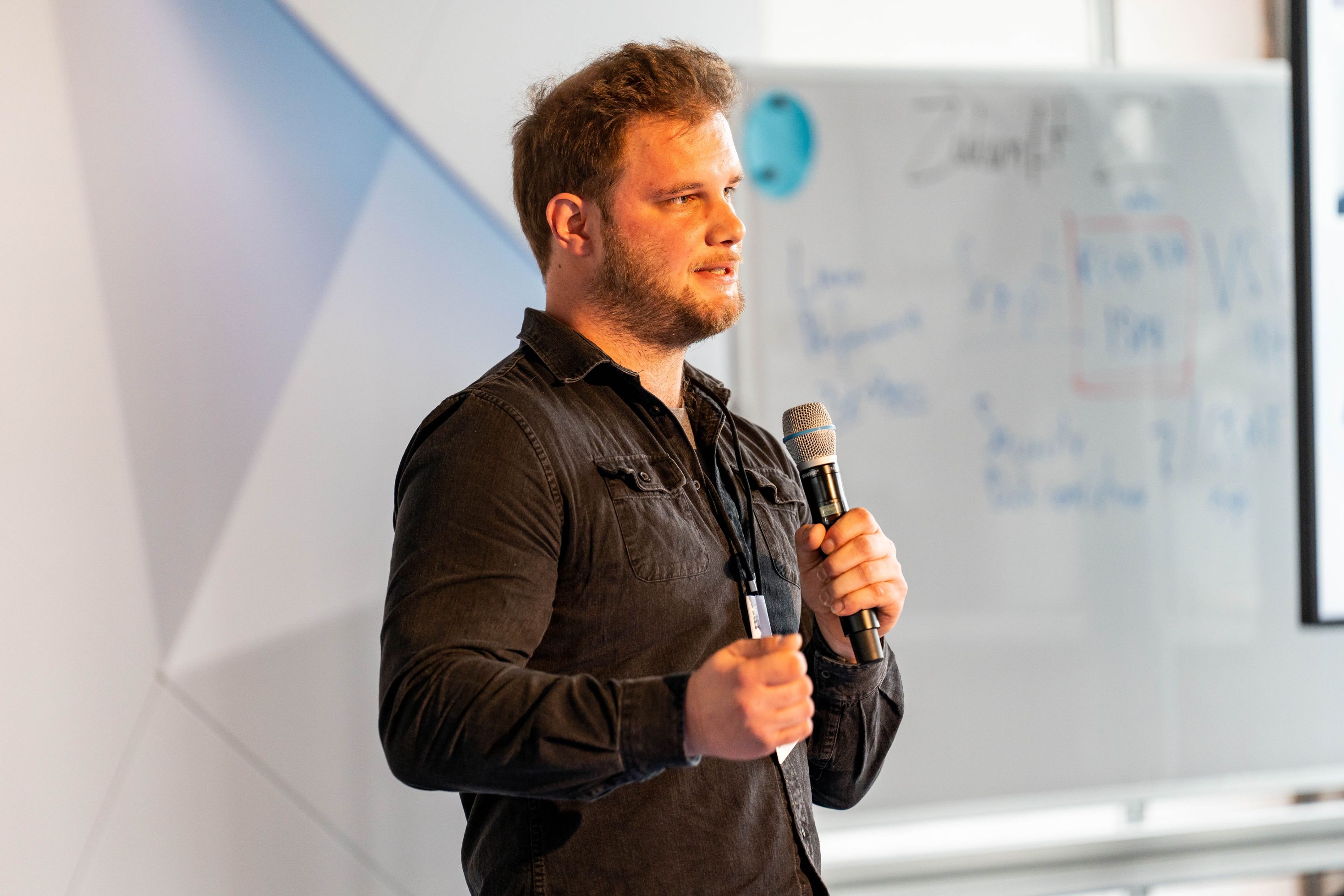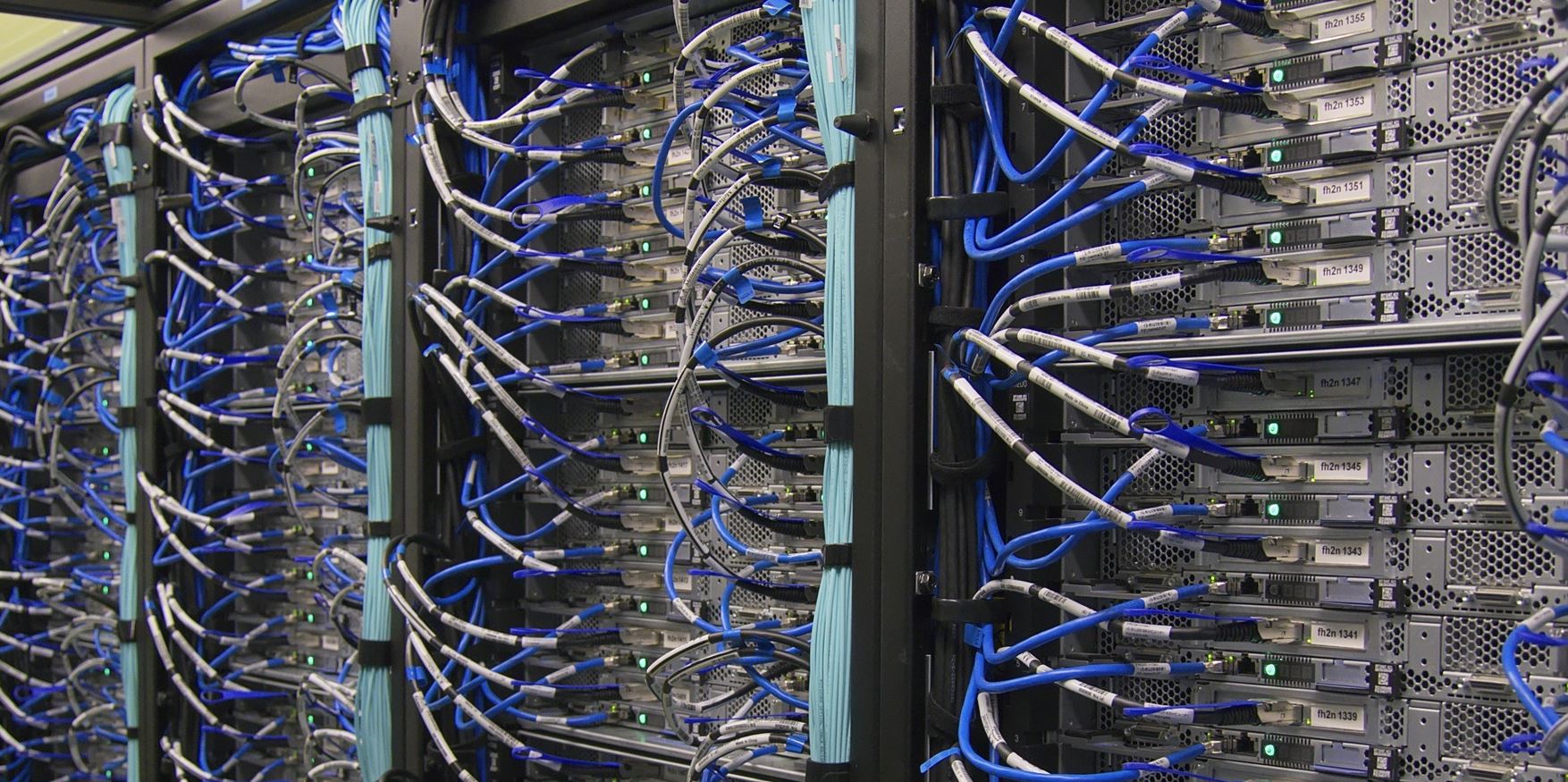The chances you don't know what mainframe is are pretty high. The chances you often work with it are even higher. This is because mainframe plays a crucial role in our daily lives, for instance when you are paying by mobile phone. HOGENT is one of the few universities of applied sciences in the Benelux (and even beyond) to have an optional Mainframe package in the bachelor's programme in IT and also offers a micro-credential in Mainframe. And in the meantime, this is well understood abroad.
The fact that few IT students choose to study mainframe is partly due to its reputation: there is a perception that mainframe is an unattractive and old-fashioned form of computer science, says lecturer and mainframe expert Leendert Blondeel: "Mainframe already existed in the '60s, when it was widely used. As a result, many students think it is an outdated technology, but this is entirely untrue. The current generation mainframes are still very relevant and are often used by international companies, such as banks, insurance companies and retailers."
Powerful, fast and secure
Mainframe can be best described as a very powerful data server. Its major asset is that the technology can process huge amounts of data very quickly and securely: up to 1.1 million transactions per second. "By comparison, Google processes 60,000 transactions per second," explains Leendert Blondeel.
But despite these decisive arguments, mainframe remains the ugly duck of applied computer science in IT education: apart from HOGENT, there is hardly a higher education institution that offers it in a course, not even abroad: "There is no such course in the Netherlands, and even in the Scandinavian countries, you won't find any", Leendert points out.
But even in HOGENT, the number of students opting for the mainframe elective module remains limited: this academic year there are only 10 students. "There should indeed be more of them," admits Leendert. "Not primarily for the sake of numbers, but mainly because students who opt for it have a very bright career ahead of them. Given the scarcity in mainframe experts, they actually have job security before they graduate and usually end up in big international companies."
Leendert recently organised a 'HOGENT Mainframe Day' where the seven companies where students can spend a few weeks of work-based learning were able to introduce themselves, and students were able to decide, through personal interviews, which company suited them best to do their internship.
Desirable bride
Companies developing or using mainframe technology therefore look to HOGENT as a desirable bride: after all, they yearn for experts in an already tight labour market.
IBM, one of the leading mainframe developers, considers HOGENT a strategic partner for mainframe education. Thus, Leendert Blondeel was asked to present the HOGENT training model to the CIOs of IBM customers from the Benelux and Scandinavia. Leendert made the presentation together with IBM's vice-president. He also works closely together with the IBM zSystems Skills Team, which consistently refers to HOGENT as an education partner throughout Europe.
One result is that quite a few foreign companies show great interest in having their employees take the micro-credential mainframe at HOGENT. In addition, HOGENT just set up a cooperation with a university from Varna in Bulgaria, where Leendert will teach mainframe knowledge as a guest lecturer.

Leendert Blondeel (lecturer and Mainframe expert): "Students choosing the Mainframe-option, have job security before they graduate and usually end up in big international companies.”
Joe Biden
This international cooperation also of course benefits the students, Leendert emphasises: "Thanks to the cooperation with IBM, the students who travel to New York on the annual HOGENT trip can visit Poughkeepsie, the cradle of the mainframe. Just as US President Joe Biden did recently, they will visit the test centre there and see one of the world's only quantum computers with their own eyes."
It is clear that Leendert is enthusiastic about mainframe and the career prospects that it offers. He therefore sees it as a personal mission to raise awareness among students. "The striking thing is that the students who learn about mainframe almost always become very passionate ambassadors of it," he concludes.
